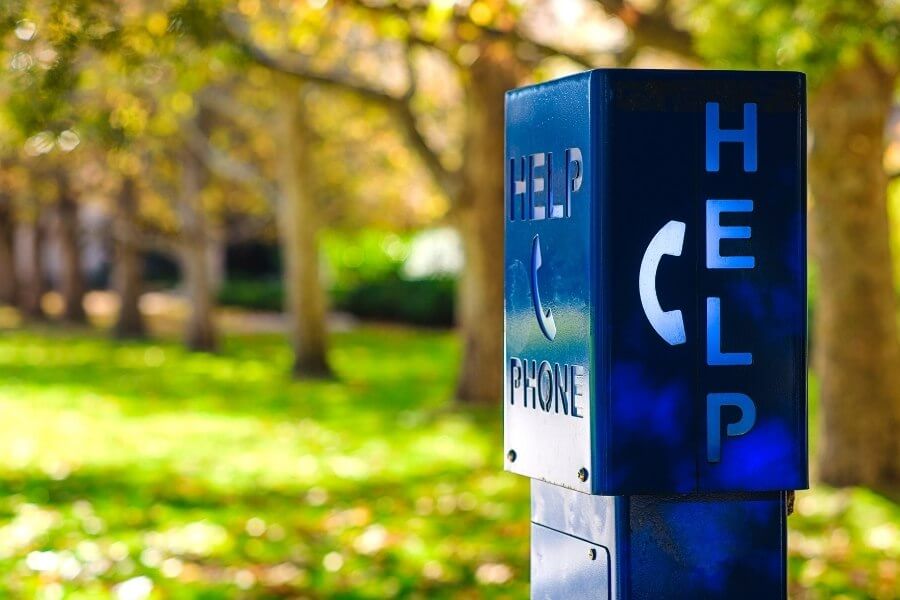
The university campus is an important environment for every student. For this reason, parents and children make a careful decision after comparing different educational places. Many universities have made solid investments in interiors, additional amenities, new facilities, and technologies to attract new students. Among these things, providing students with a safe environment is a crucial component in the overall success of your institution.
1. Plan Strategically
Security is a crucial aspect that students and families expect every college and university to provide, but cookie-cutter security programs won't cut it. Campus security must be strategically tailored to each campus or institution and its unique academic mission.
For example, large liberal arts campuses need to support students moving between different buildings as they attend various classes. Meanwhile, science and engineering schools need to ensure that students have ready access to sensitive and sometimes regulated materials used for research. Schools with large athletics programs need to manage crowds effectively on game days.
These colleges will have different definitions of adequate security. Still, each will need to balance their special considerations with more universal security measures that cover the entire campus, including classrooms, dorms, recreational facilities, and all the spaces in between.
2. Establish a Security Task Force
The first step toward successfully securing your campus is establishing a task force. This doesn't have to be a large group; it can be a small department or even an existing committee. The key is to make sure you're always operating from a position of knowledge, consent, and support. Therefore, establishing cooperative and productive relationships with every group that has a stake in your institution is imperative. Students, parents, faculty, and staff members should all be included, as well as facilities and operations management, your IT professionals, local and campus police, and businesses both on and off-campus. Certainly, it's important to get the endorsement of the chancellor, president, dean, or the college's governing body. But don't stop there. Take every opportunity to speak to as many different organizations as you can. Because when it comes to campus safety, nobody likes surprises.
3. Train Everyone
Safety isn't just for security staff to understand. Everyone at higher ed institutions needs to have a general understanding of security awareness training.
For example, faculty and staff—who have more day-to-day interactions with students than security officers—need to know how to respond when threats arise. This could include assigning emergency response roles to the staff to best direct what to do when large-scale incidents occur. Or it could mean behavioral threat assessment training for faculty to recognize the warning signs of impending violence.
Students are probably the best resource on how to pinpoint issues and improve campus safety and security. In the CollegeStats.org survey, students mentioned that excessive drinking and sexual assault were top student concerns. Proper training may enhance the likelihood that students will keep each other safe from such threats.
4. Upgrade and Maintain Campus Security Technology
Security technology is being upgraded all the time. Campuses have to prioritize security spending if they’re to protect their students. Surveillance equipment and access controls are the most important technologies to upgrade regularly.
- Access control technology ensures that students have top safety features in areas they should feel safe in. In other words, technology should be used to secure dormitories and dorm rooms, in addition to any areas that are intended to be student restricted. Too often, older, unreliable technology is used that students can easily breakthrough. Students and stakeholders should also be aware of proper protocols to follow when entering or leaving secured areas.
- Large-scale, violent events are unfortunately a realistic concern. Lockdown technology makes it possible to automatically secure doors and hallways and protect students if a dangerous or violent event occurs. The campus must be able to lock down areas remotely to respond to such threats quickly.
- A comprehensive alert system should be implemented and maintained. Students, above all, need to know when an incident is occurring on campus, creating a highly preventative and responsive communication strategy to keep students up to date on pertinent information.
5. Ensure Your Response Protocols Are in Place
An emergency action plan (EAP) is vital for every campus, regardless of size. An effective EAP would include a thorough breakdown of what is being done to pre-empt specific critical scenarios, how to deal with these scenarios, and how to respond if this scenario were to happen. This can be quite complicated when considering environmental factors, emergency response teams, and communication.
After an EAP is complete, the work is not done. Your EAP must be disseminated throughout your entire campus, so every person has a leg up on what their role is during each possible scenario. Regular testing is also essential. Your testing should take place during busy times to simulate your plan's effectiveness in an environment as close as possible to a crisis.
EAPs are meant to be suited to your specific campus environment. Ultimately, it’s up to you to decide which scenarios to prepare for and how your community is fit to respond to them.
In conclusion, it is very important to be transparent about incidents and keep your campus community in the loop. Incident reporting is useful for more than just regulatory compliance. It is just generally good communication. This kind of transparency around student safety can help build trust between security staff and the rest of the college community.
Dedicated to College Campus Safety
At School Safety Solution, we are dedicated to providing safety solutions for all public and private schools, ranging from childcare centers to college and university campuses. With the ultimate goal of saving lives, we offer lockdown shades, classroom door locks, and other safety products for schools to utilize during emergency situations. If you are ready to take the next steps toward increased campus security, get in touch with us at 888-733-0406 or info@schoolsafetysolution.com to learn how you can effectively improve safety at your college or university.